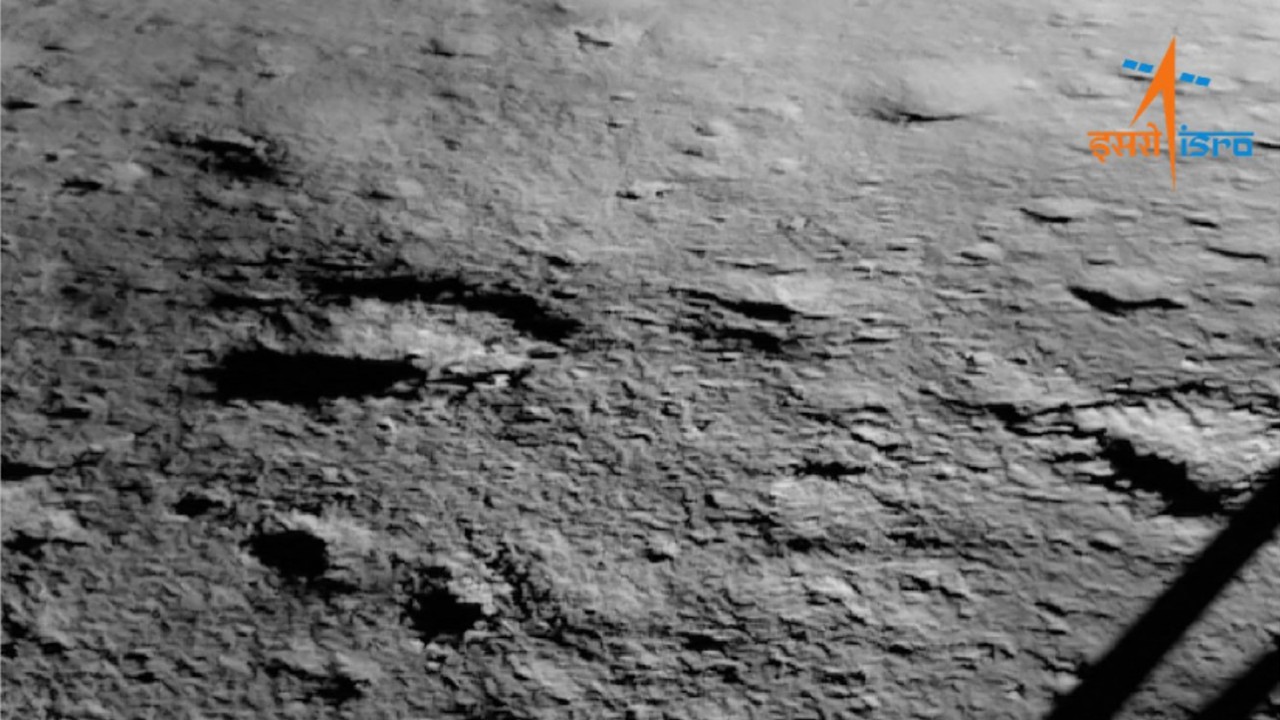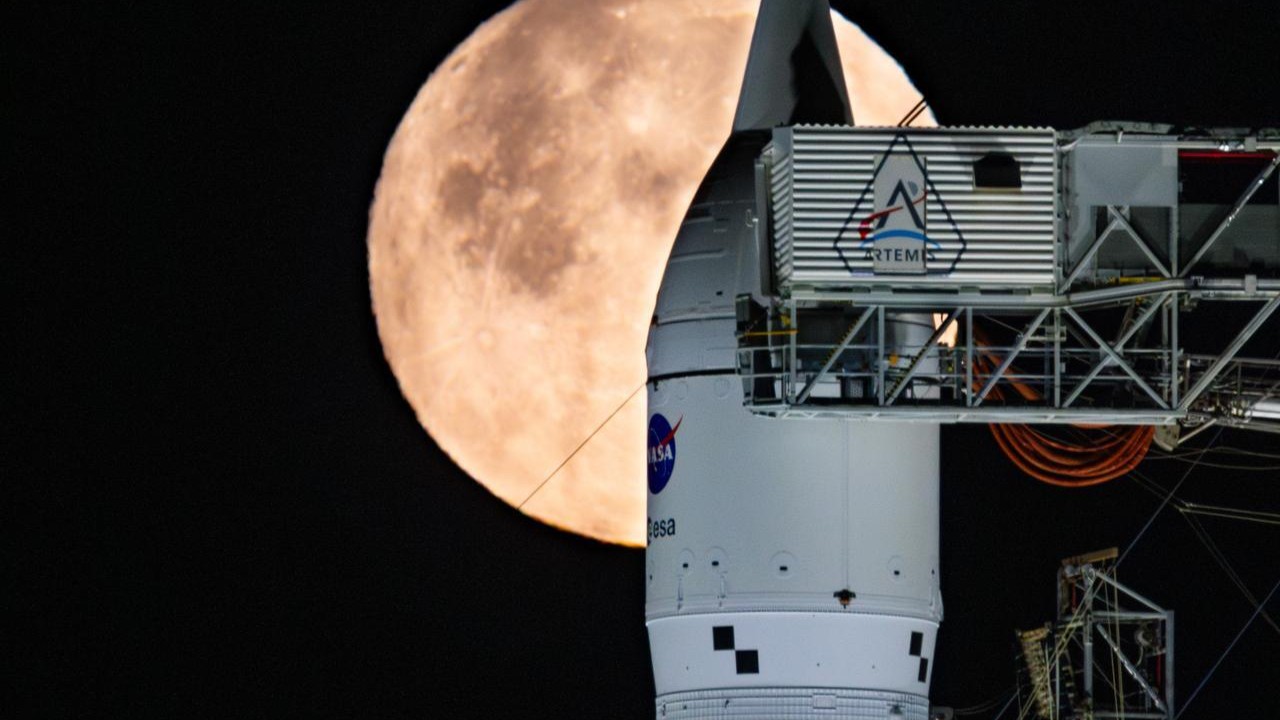India's historic Chandrayaan-3 moon landing celebrated by ISS astronauts
'Many nations will follow the same footsteps of India.'

Breaking space news, the latest updates on rocket launches, skywatching events and more!
You are now subscribed
Your newsletter sign-up was successful
Want to add more newsletters?

Delivered daily
Daily Newsletter
Breaking space news, the latest updates on rocket launches, skywatching events and more!

Once a month
Watch This Space
Sign up to our monthly entertainment newsletter to keep up with all our coverage of the latest sci-fi and space movies, tv shows, games and books.

Once a week
Night Sky This Week
Discover this week's must-see night sky events, moon phases, and stunning astrophotos. Sign up for our skywatching newsletter and explore the universe with us!

Twice a month
Strange New Words
Space.com's Sci-Fi Reader's Club. Read a sci-fi short story every month and join a virtual community of fellow science fiction fans!
The good news about India's Chandrayaan-3 lunar landing reached orbiting astronauts through social media.
Chandrayaan-3's successful landing on the moon today (Aug. 23) was "all over the news" during the lunch break of Sultan Al Neyadi, an International Space Station astronaut conducting the first long-duration orbital mission for the United Arab Emirates (UAE).
"It was really big," the SpaceX Crew-6 astronaut told Space.com from orbit during a press conference today. "I saw multiple clips of mission control in India ... it was really great watching that achievement, and, hopefully, as I've mentioned, many nations will follow the same footsteps of India."
Related: India on the moon! Chandrayaan-3 becomes 1st probe to land near lunar south pole
The 6-billion-rupee (roughly $73 million US) Chandrayaan-3 mission's touchdown was a historic moment for the Indian Space Research Organisation. India became only the fourth country to achieve a soft landing on the moon, after the United States, the former Soviet Union and China. For the next two weeks, the lander Vikram and the rover Pragyan will explore the surface together, if all goes according to plan.
The UAE had hoped to touch down on the moon earlier this year as well, via a small rover on board a lander built by the Japanese company ispace. But that lander failed during its touchdown attempt on April 25, illustrating how difficult it still is to do moon missions.
Al Neyadi's comments, however, emphasized that moon landings are a shared international goal no matter who is at the helm of a mission. "This is really important to emphasize on the global effort. We can't go alone," he said in response to another question about Chandrayaan-3, from Space.com partner collectSPACE.
Breaking space news, the latest updates on rocket launches, skywatching events and more!
Many of the ISS partners have their own moon plans in the works. Most of those nations, including the UAE, are signatories of the NASA-led Artemis Accords. The accords represent a coalition of dozens of countries aiming for the moon and the establishment of norms for peaceful and responsible exploration.
NASA aims to put boots on the moon with its Artemis 3 mission in late 2025 or 2026. No astronauts have walked on the lunar surface since NASA's Apollo 17 in December 1972. The larger Artemis program seeks to set up a sustainable human presence on and around the moon by the end of the 2020s.
Russia is forging a path to the moon as well, alongside China, after the fallout of Russia's internationally condemned invasion of Ukraine, which began in February 2022 and is ongoing. Russia's lunar plans took a hit over the weekend, however, when the nation's Luna-25 probe crashed during a maneuver designed to set up a landing attempt.

Elizabeth Howell (she/her), Ph.D., was a staff writer in the spaceflight channel between 2022 and 2024 specializing in Canadian space news. She was contributing writer for Space.com for 10 years from 2012 to 2024. Elizabeth's reporting includes multiple exclusives with the White House, leading world coverage about a lost-and-found space tomato on the International Space Station, witnessing five human spaceflight launches on two continents, flying parabolic, working inside a spacesuit, and participating in a simulated Mars mission. Her latest book, "Why Am I Taller?" (ECW Press, 2022) is co-written with astronaut Dave Williams.
